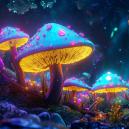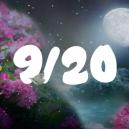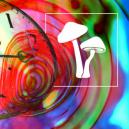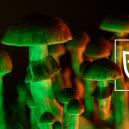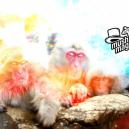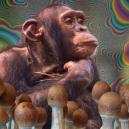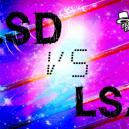Magic Mushrooms And Their Influence On Personality
Published :
February 19th, 2018
Categories :
Research

Science has previously assumed one’s personality is established and stable by age 30. A new study is suggesting that magic mushrooms can alter one's personality by making them feel more open and imaginative.
It was previously believed that the personality of adult humans does not change much after the age of 30. New research suggests that transcendental experiences from consuming magic mushrooms can indeed alter the personality of those even beyond this age. Researchers observed that psychedelic experiences led to a more open and imaginative personality in participants, as well as an increased appreciation for new things.
Published in the Journal of Psychopharmacology, the results of the study are surprising. The findings contradict the assumption that adults do not undergo significant changes in personality. Furthermore, it refutes the idea that one simply gets stuck in their ways.
Lead researcher Katherine MacLean (Johns Hopkins University School of Medicine in Baltimore) points out that her team’s findings are some of the first to reach this groundbreaking conclusion.
MAGIC MUSHROOMS AND THE DOMAIN OF OPENNESS
Magic mushrooms contain the psychoactive compound psilocybin, which can bring on deeply spiritual, mystical, and transcendental experiences. These experiences can feel very real and often leave behind very profound effects.
This particular study involved a group of participants with no prior experience using hallucinogens. Participants underwent several drug sessions where they received either a placebo, or varying doses of psilocybin. Throughout the experience, neither the researchers nor the participants knew who received what. After the drug sessions were complete, additional tests using Ritalin were conducted to determine the role of the psilocybin.
Before the drugs were administered, participants filled out personality questionnaires to establish their personality beforehand. These questionnaires were then repeated several more times before, during, and after the study.
STUDY RESULTS
The study revealed that openness, which is one of the basic domains of human personality, increased after the psilocybin experiences. Interestingly, other personality aspects didn’t show any changes. The biggest change was in those participants who reported that they had a mystical experience that was accompanied by feelings of peace, joy, and connectedness.
MacLean believes that it’s not the drug itself that leads to these profound changes, but the life changing experiences caused by it. She thinks that the key here is to establish how psilocybin allows individuals to transcend their pre-set ways of thinking.
The majority of those who participated in the study (30 out of 51) reported mystical experiences. The observed changes in openness following the study were significantly more pronounced than normal personality changes that one might undergo throughout their life.
EXERCISE CAUTION
MacLean does warn against unsupervised experimentation involving psychedelic substances. She stresses the necessity for preparation, supervision, and psychological support to keep the risk for bad trips low. Under the influence of psilocybin, many of the participants still experienced anxiety, fear, and distress. In an unprofessional or unsupervised setting, such bad experiences can be dangerous for those without experience.
MacLean also wonders whether such unsupervised trips would result in the same, largely positive results as her study. She notes that the participants in her group were already more spiritual and open than most people. The effect of this drug on individuals with starkly different personalities may not be the same.
A MORE SCIENTIFIC APPROACH ON THE EFFECTS OF PSYCHEDELICS
Studies on psychedelic substances are nothing new. However, many previous studies were less than scientific or ethical. At times, tests performed as far back as in the 1960s were nothing more than a celebration of the hippie counterculture. Other trials involving LSD and other drugs tested substances on inmates, sometimes semi-voluntarily in exchange for an early release, or completely involuntarily. Needless to say, none of these experiments rendered any truly useable data. New research is finally changing this trend and taking a more serious stance on the potential of psychedelics.
PSYCHEDELICS FOR TREATING MENTAL DISORDERS
With psychedelic substances such as psilocybin, LSD, and MDMA having profound effects on one’s personality and mental state, researchers are now looking into using these substances for treating mental disorders.
Exploration into how psilocybin and LSD can help treat depression, anxiety, and PTSD is well underway. There is also research being conducted on whether psilocybin could be effective for treating various addictions.
MAGIC MUSHROOMS AND THE FUTURE
The promising results explored above certainly justify more continued research in the area of psychedelics. Positive change in openness, as these findings suggest, could be very helpful for a variety of scenarios. Aside from using psychedelics as a potentially effective treatment for mental health conditions, there are likely many other areas of value worth researching. No doubt about it, there is still lots to explore on how psychedelics can benefit humans!







